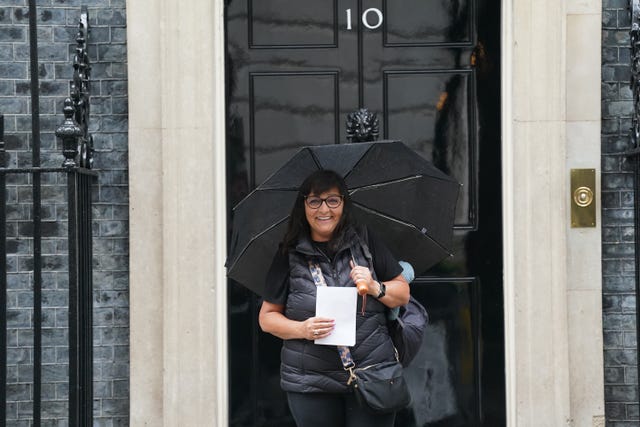Martyn’s Law clears Commons as minister declares ‘it is time to get this done’
Figen Murray campaigned for the law after her 29-year-old son Martyn Hett died in the Manchester Arena bombing.

MPs have backed a new law aimed at preventing terror attacks at events venues, including nightclubs, concert halls and churches.
The Terrorism (Protection of Premises) Bill, also known as Martyn’s Law, will compel all UK venues with a capacity of more than 200 people to have plans for an attack on their premises.
Figen Murray campaigned for the law after her 29-year-old son Martyn Hett died in the Manchester Arena bombing, at the end of an Ariana Grande concert in May 2017.
The Bill, which passed its third reading without a division, will now face scrutiny in the House of Lords.
Security minister Dan Jarvis told the Commons at the Bill’s third reading: “After seven years, and as Figen has said, it’s time to get this done.”
He had earlier described the draft law as “one part of our already extensive efforts across Government including those of the police and the security services to combat the threat of terrorism”.
Mr Jarvis added: “The first responsibility of any Government is to keep the public safe and this cross-party commitment to improve the safety and security of venues in the wake of the Manchester Arena attack must be delivered without further delay.”

“National security is a collective endeavour.
“Organisations affected by these changes are acutely aware of their responsibility.
“They understand the importance of protecting their customers from terror and are committed to ensuring that people can attend concerts, exhibitions and performances with the confidence that they are safe.
“It’s in this spirit of collaboration and mutual responsibility which will ultimately make the provisions in Martyn’s Law a success.
“This responsibility goes both ways, just as we expect venues to take the necessary steps in this Bill, they expect the Government to approach its implementation in a measured and sensible manner.”
Venues hosting qualifying events will have to report to the Security Industry Authority (SIA) watchdog, which will have investigation and enforcement powers.
Operators may need to make changes to comply with the rules, by locking doors, closing shutters and identifying safe escape routes.
Big venues expected to host 800 or more individuals will face an “enhanced duty”, looking at how people move in and out of events, and the security of information which might be useful to a person preparing an attack.
Some MPs raised fears small venues may be unable to cope with the new requirements, including the Liberal Democrats’ shadow attorney general Ben Maguire who said: “There are of course concerns from many micro and small businesses about the financial impacts and the additional bureaucracy that these requirements may bring.”
He called for “a practical training plan” for business staff and event volunteers.
Jim Shannon, the DUP MP for Strangford, said: “What we’re doing tonight in this debate is we’re asking our churches, our charities, our missionary groups, those who run community halls to consider these things, who have no experience.”
He added that churches tell him “they want to be equipped, they want to be able to respond”, and Mr Jarvis pledged to “work closely with” religious institutions which are covered in the Bill to provide them with support.





